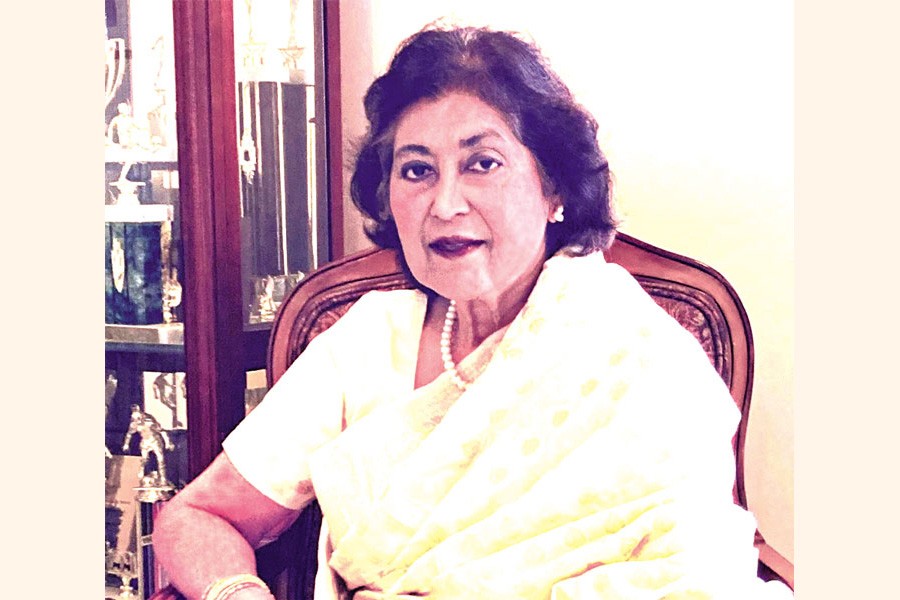It was over fifty years ago in March 1968 when Rahima Karim had boarded a PIA flight from Dhaka that was bound for London. A few days later, a Pan American Airlines (PANAM) flight from the UK landed her at the J.F. Kennedy Airport, New York, and she joined her husband Engineer Rezaul Karim at the Stevens Institute of Technology, Hoboken, New Jersey. For Rahima Karim, that was the beginning of a long journey of over half a century which saw the Karim family settling down in the USA, helping many other extended family-members from Bangladesh to migrate to America, and achieving success as professionals and community leaders in a foreign land. Alongside description of the author's personal experiences, Half a Century in America recounts many important events that took place in the USA during the five and a half decades after Rahima started a new life with her husband there. She confides that her memoir is a tale meant for her children and grandchildren, as well as the new generation of American immigrants arriving from Bangladesh.
In fact, the chronicle progresses in two parallel streams in the book. One stream encapsulates the experiences of the writer and her family both in the USA and Bangladesh; the other stream recalls the significant events in American history dating from the late 1960s. The latter includes the assassinations of Martin Luther King Jr. and Robert Kennedy in 1968; mass protests against America's involvement in the Vietnam War; NASA's thriving space program that included sending the first men to moon on board Apollo 11 in July 1969; shadowy serial killers and religious cults in the USA; independence of Bangladesh in 1971; fuel crisis resulting from oil embargo against the USA by OPEC member-states in 1973-74 following the Arab-Israeli war; Impeachment of President Nixon in August 1974 due to Watergate Scandal; US withdrawal from Vietnam in 1975; successful anti-tobacco movement in the USA during the 1970s; technological revolutions including arrival of micro-processors, personal computers, video games, and mobile phones during 1980s; the first Gulf War in 1990-91; election of President Clinton in 1992 and his scandal with Monica Lewinsky at the White House followed by Republican efforts to impeach him; terrorist attacks in the USA on 11 September 2001; and the economic recession of 2008.
An interesting episode described in detail in the memoir was the involvement of the writer's husband Engineer Dr Rezaul Karim in the invention and launching of mobile telephony during the 1970s and early 1980s. Dr Karim was recruited by the Bell Labs (named after the inventor Alexander Graham Bell) - the research and development organization of American Telephone and Telegraph (AT&T) Company, in September 1972. He joined the team at Bell's mobile telecommunications laboratory that was working on developing an altogether new type of mobile telephony called 'cellular system'. The team started testing an experimental mobile phone system as early as in 1976, which was designed by Karim and his colleagues and included radio receivers, transmitters and control systems developed at the Bell Labs. The mobile switching set-up that forwarded mobile phone calls was also developed at that laboratory.
AT&T's Illinois Bell Telephone Company had earlier filed a petition to the US Federal Communications Commission (FCC) in 1975 asking for permission to test a cellular system with actual users, which was subsequently granted in 1977. Then in 1978, a completely developed system was installed at Oak Park, Illinois, to verify the system concept as well as hardware/software design issues. This phase of the trial involved one hundred mobile phones designed by the Bell Labs team of Dr Karim, which was the world's first ever complete mobile phone system. Then a second field test was conducted in the same area in 1979 with mobile phones and cell-site equipment designed by the Bell Labs and participated by about 2,500 customers. The tests continued throughout 1979 and the customers were satisfied with the service. After these successful trials, the FCC granted the Bell Labs permission to manufacture the base station and switching equipment - but not mobile phone sets. The justification was that granting Bell Labs such permission would stifle future competition in mobile telephony, as the entity would be far ahead of competitors due to a head-start in developing the system. In any case, the contribution of the Bangladeshi engineer Dr Rezaul Karim in developing mobile telephony at Bell Labs will undoubtedly go down in the annals of American inventions as a small piece of history that the new generation of Bangladeshi Americans can be justifiably proud of.
The writer is a bit cautious in her optimism about the American future in the concluding paragraphs of her memoir. She writes, "For many, this country is still a dreamland. Personally, I do not think that is completely true these days. Here, as elsewhere in the world, there have been significant social, political and economic changes; while some have seen their hopes realized, others have seen their opportunities limited and hopes diminished".
The writer also dwells on another dilemma facing our modern-day existence in the memoir's last paragraph. She laments that while science and technology have given us new things like cellular phones that improved our day to day existence, they have also taken away our peace of mind. Despite all these, she urges everybody to dream about better things ahead and continually strive for sustaining the journey on the path of progress and salvation. Overall, this brief memoir of 128 pages appears to be quite an interesting and well-written one, and certainly deserves the attention of aspiring migrants as well as new generation of Bangladeshi immigrants in the USA, for whom it was originally intended.
Dr Helal Uddin Ahmed is a retired Additional Secretary and former Editor of Bangladesh Quarterly. [email protected]


